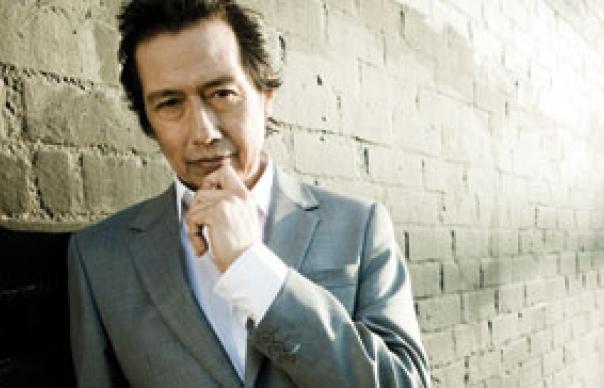Escovedo shares a manager with Bruce Springsteen these days, a connection that’s inescapable on this 10th solo LP. The Boss himself adds brawn to the suitably muscle-bound duet, “Faith”, and indeed there’s a ‘big production’ feel to this whole thing, no doubt aided by the presence of Born In The USA mixman Bob Clearmountain. Yet it remains very much a personal Escovedo project, a meditation not only on the myriad forms of love but also a tribute to both family and departed friends. The songs (mostly co-written with Chuck Prophet) were forged over a two-month residency at Austin’s Continental Club, where he and trusty backing band The Sensitive Boys chiselled and chipped until they took shape. Then along came Tony Visconti, adding the same robust, freewheeling production he brought to 2008’s Real Animal. This is Escovedo in lean, bullish mood, tunes like “Silver Cloud” and “This Bed Is Getting Crowded” almost a throwback to the inflamed roots-rock of his ’80s heroes, The True Believers. “Tender Heart” even finds him and the band buzzing away like early Elvis Costello & The Attractions. That said, Escovedo is as reflective as he is melodic, and never more so than on “Down In The Bowery”. Here, aided by old buddy Ian Hunter, Escovedo addresses his teenage son, Paris, undergoing a turbulent stage. “I’d buy you a smile in a minute,” he sings in soft tones, “But would you wear it?” Then there’s “Tula”, a tribute to late Mississippi writer and friend Larry Brown, a slippery swamp-funk thing that recalls Little Feat and the Los Lobos of Kiko. And “Fort Worth Blue”, an acoustic elegy to his late guitarist, Stephen Bruton. “Faith”, meanwhile, finds Escovedo and Springsteen punching out verses, the song becoming an affirmation of the religious, redemptive power of rock’n’roll itself. It’s a moment which serves as a calling card for the record as a whole – and praise be for that. Rob Hughes
Escovedo shares a manager with Bruce Springsteen these days, a connection that’s inescapable on this 10th solo LP. The Boss himself adds brawn to the suitably muscle-bound duet, “Faith”, and indeed there’s a ‘big production’ feel to this whole thing, no doubt aided by the presence of Born In The USA mixman Bob Clearmountain. Yet it remains very much a personal Escovedo project, a meditation not only on the myriad forms of love but also a tribute to both family and departed friends.
The songs (mostly co-written with Chuck Prophet) were forged over a two-month residency at Austin’s Continental Club, where he and trusty backing band The Sensitive Boys chiselled and chipped until they took shape. Then along came Tony Visconti, adding the same robust, freewheeling production he brought to 2008’s Real Animal. This is Escovedo in lean, bullish mood, tunes like “Silver Cloud” and “This Bed Is Getting Crowded” almost a throwback to the inflamed roots-rock of his ’80s heroes, The True Believers. “Tender Heart” even finds him and the band buzzing away like early Elvis Costello & The Attractions.
That said, Escovedo is as reflective as he is melodic, and never more so than on “Down In The Bowery”. Here, aided by old buddy Ian Hunter, Escovedo addresses his teenage son, Paris, undergoing a turbulent stage. “I’d buy you a smile in a minute,” he sings in soft tones, “But would you wear it?” Then there’s “Tula”, a tribute to late Mississippi writer and friend Larry Brown, a slippery swamp-funk thing that recalls Little Feat and the Los Lobos of Kiko. And “Fort Worth Blue”, an acoustic elegy to his late guitarist, Stephen Bruton. “Faith”, meanwhile, finds Escovedo and Springsteen punching out verses, the song becoming an affirmation of the religious, redemptive power of rock’n’roll itself. It’s a moment which serves as a calling card for the record as a whole – and praise be for that.
Rob Hughes



